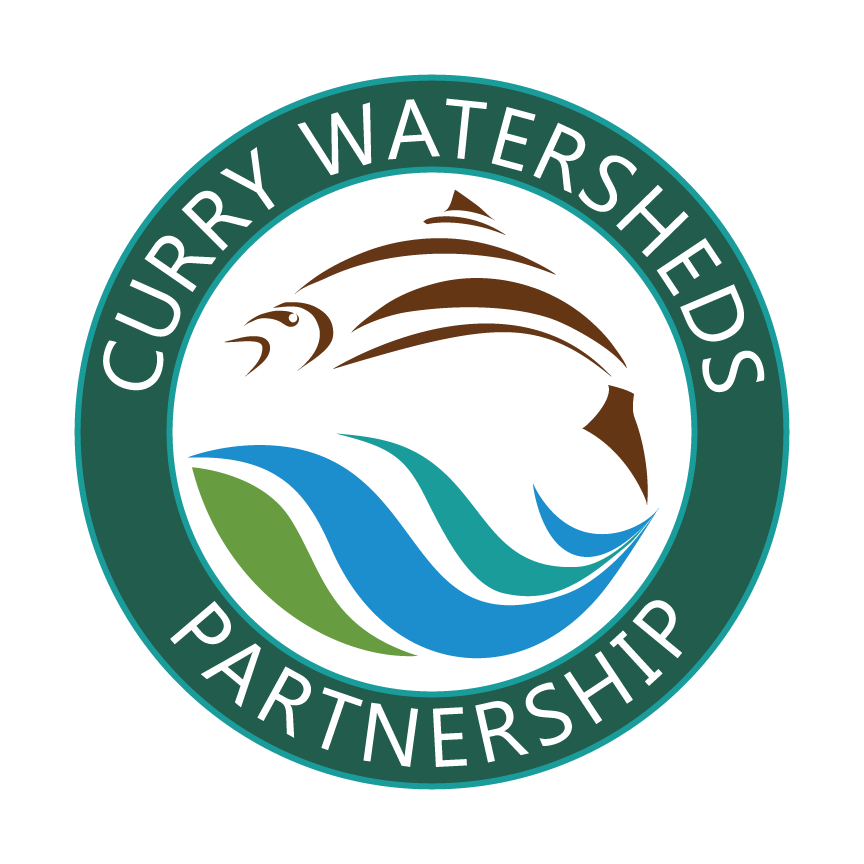Nature & Science
Reel Fish Days:
3rd grade students participate in the circle of life as they learn fishing skills (taking life), give “Tender Loving Care” to student-planted trees and shrubs along small streams (giving life back), and taking a watershed hike with a ranger. This field trip is many students’ first time catching a fish and planting a tree; all with the guided support of natural resource partners and angler education volunteers.
These field days are held at a youth fishing pond at an Oregon State Park Day Use Area, and are intended to serve all public, private and home-schooled 3rd grade students in Curry County. To be an Angler Education volunteer, contact ODFW STEP Biologist John Weber by email at john.a.weber@state.or.us. To learn how to get your home-schooled 3rd grade child involved, please contact: CWP by email info@currywatersheds.org.
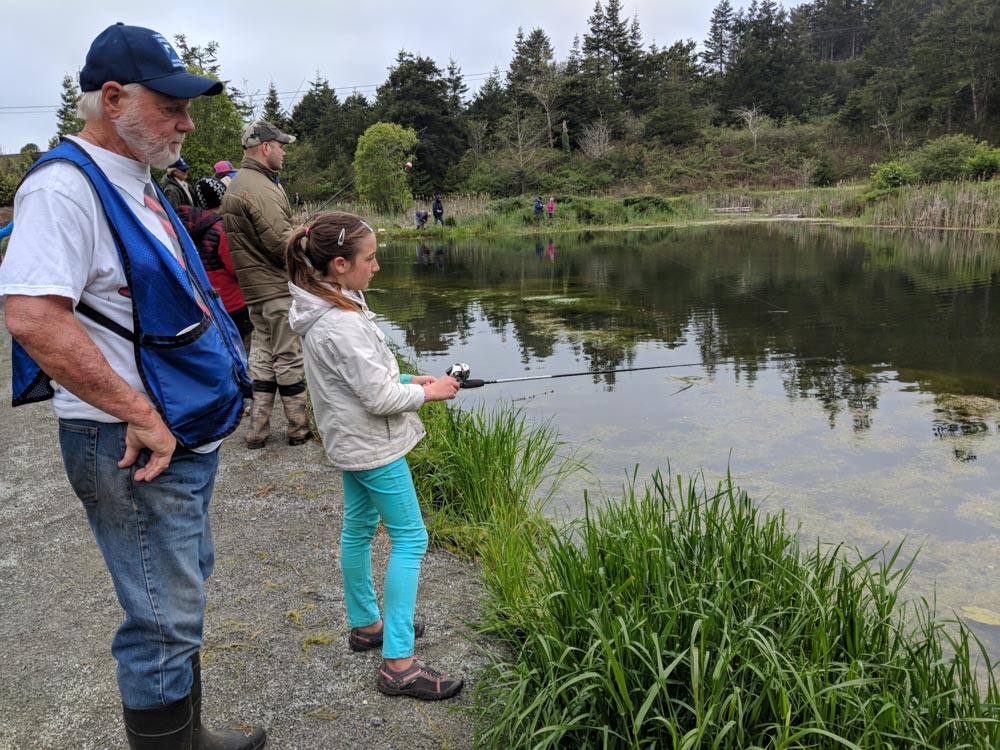
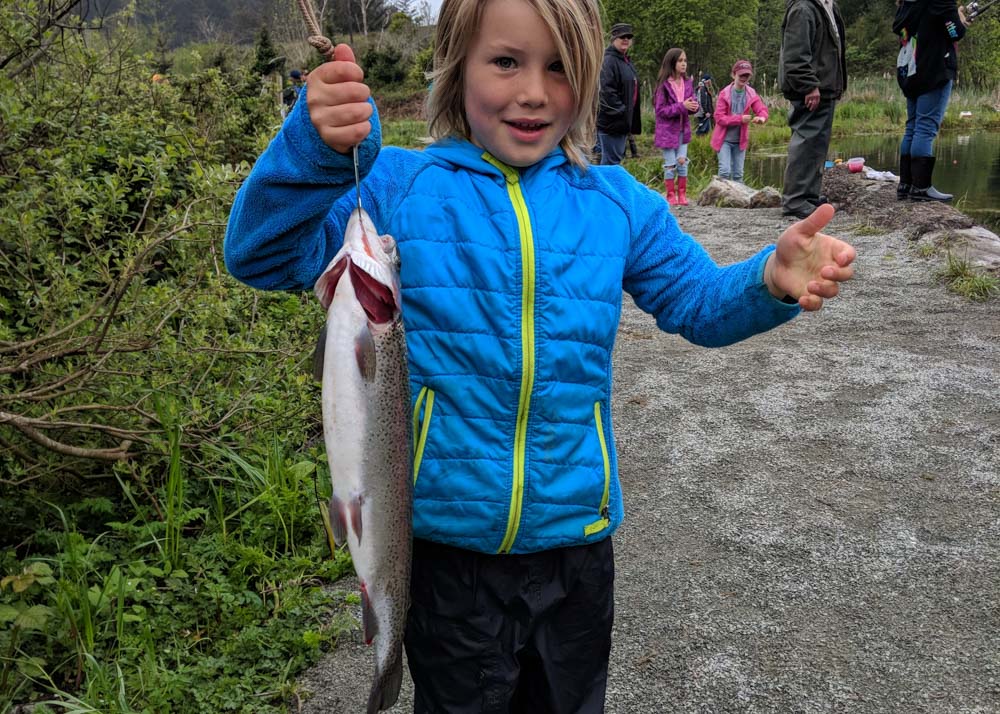
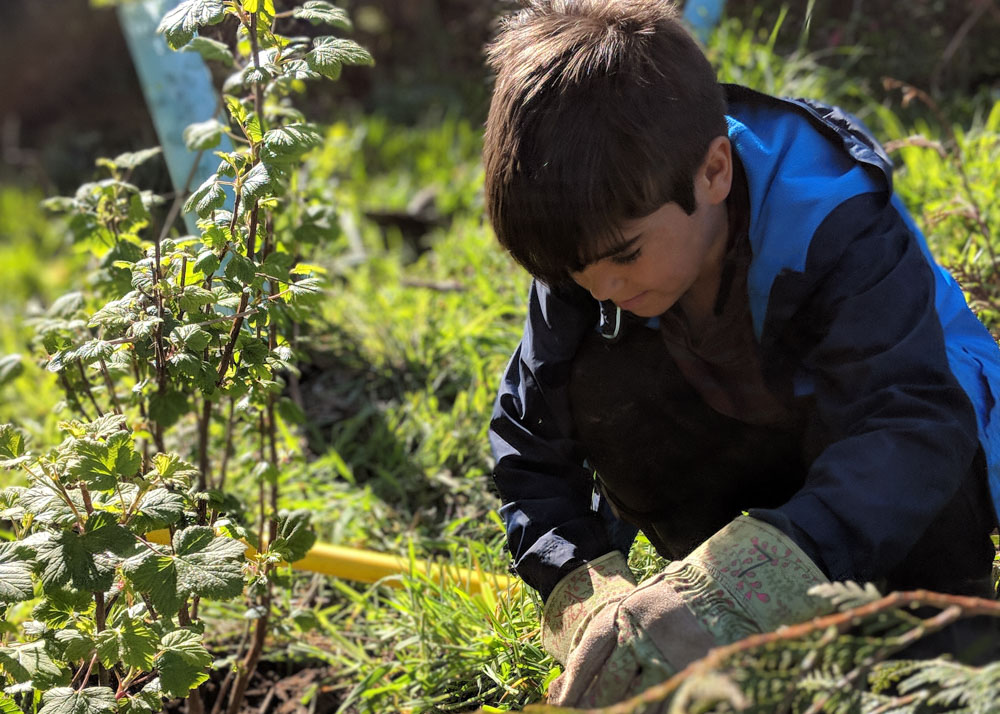
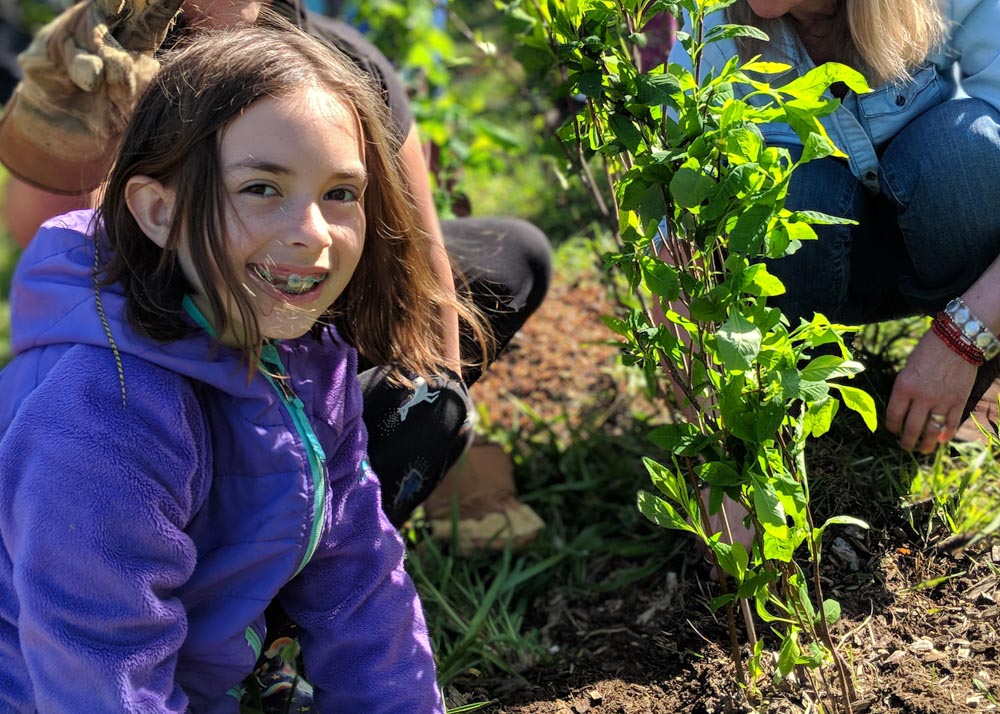
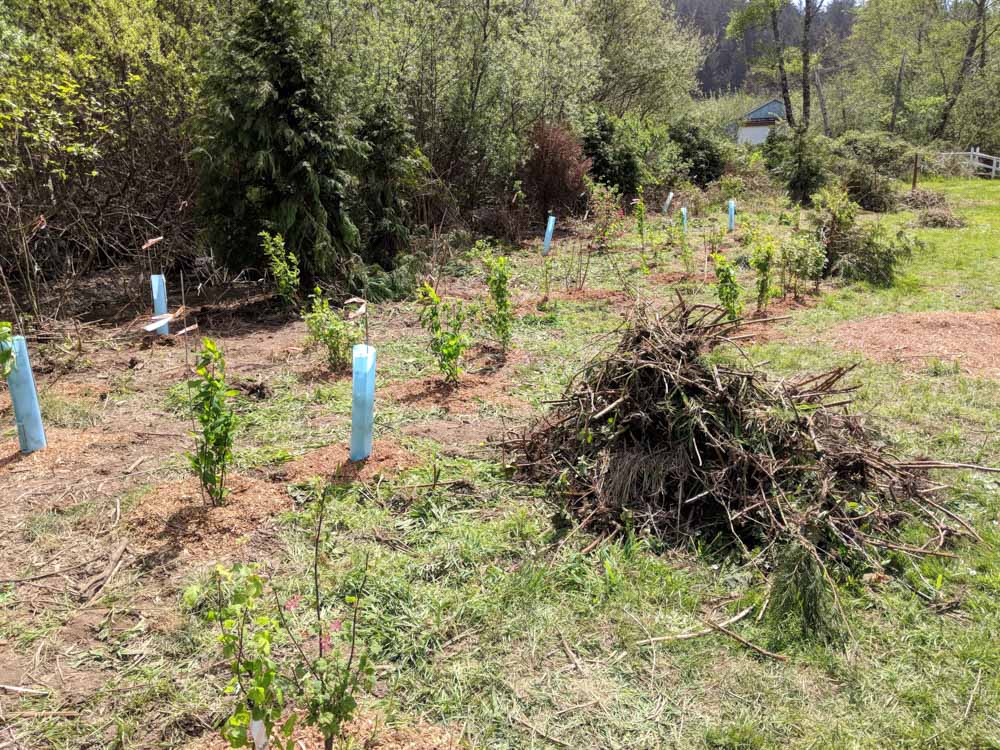
Salmon Watching:
Students explore the salmon’s web of life in the classroom before suiting up for a Salmon Watching field trip. All 4th grade students in Curry County schools practice science skills and use scientific instruments to gather data on their field trip to an agricultural stream that is home to Coho and Chinook salmon. Classroom lessons and field trips are aligned with Next Generation Science Standards.
Got boots? No worries! All materials are provided for field experiences and classroom learning.
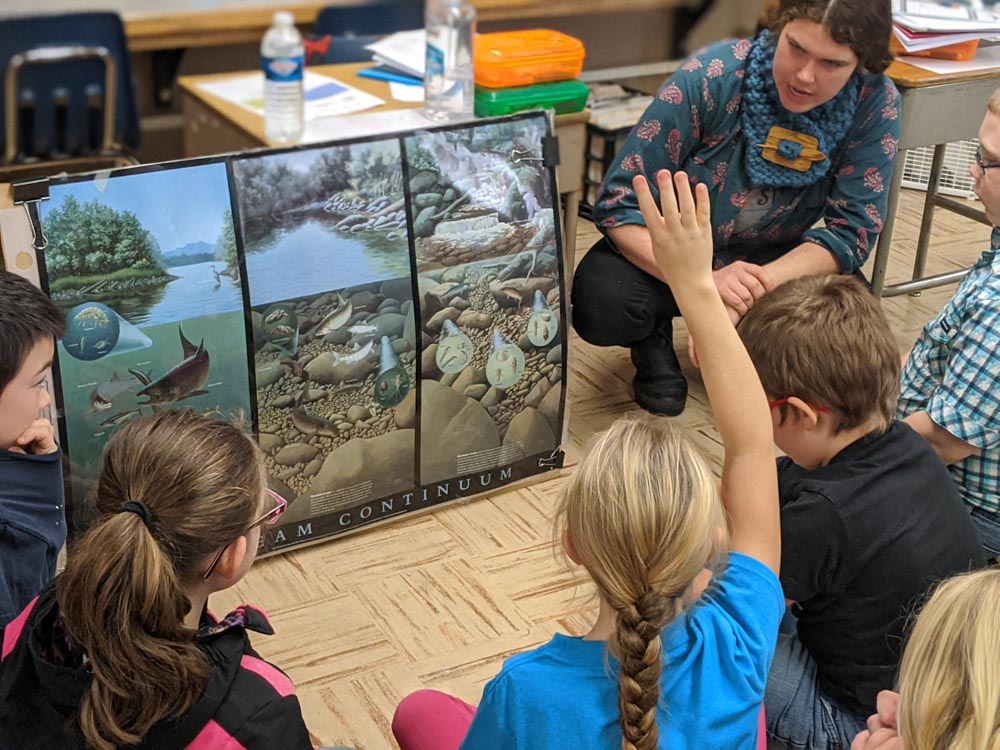
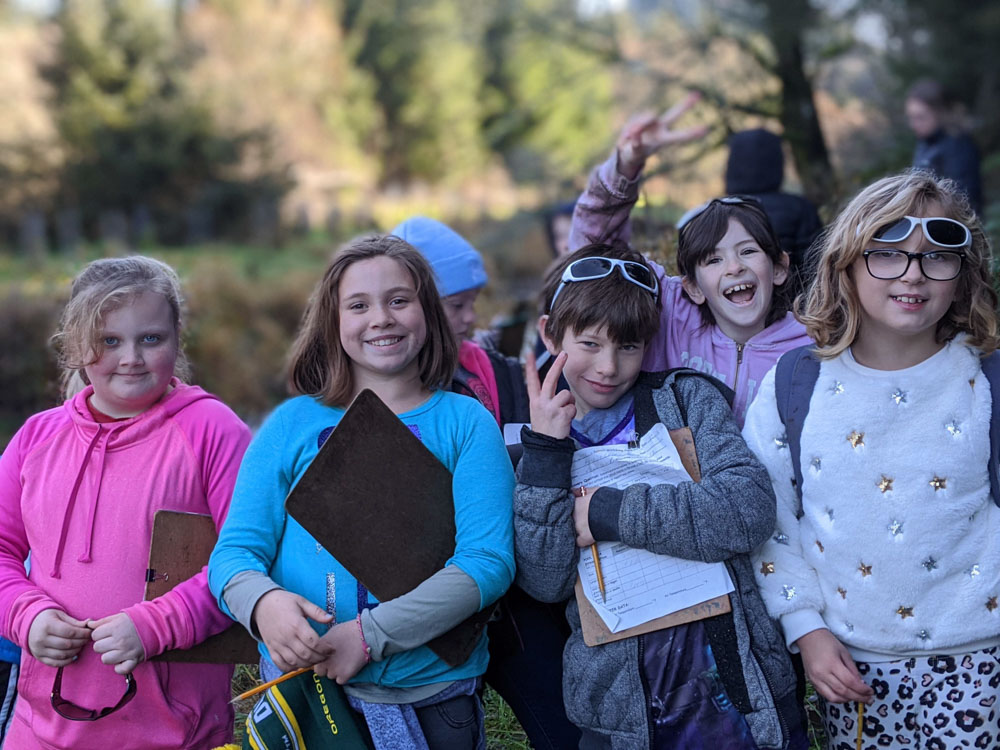
Natural Resources Day:
The goal of Natural Resource Field Days are to ignite curiosity for the natural world, practice environmental stewardship, and connect students to the diversity of people in their community.
Schools from each public school in Curry County participate in an exciting field day that introduces students to the many sciences of natural resources, such as: Geology, Soils, Native Plants, Fish, Wildlife, Butterflies, Macro-Invertebrates, Fire, Ocean health, Riparian zones, and more!
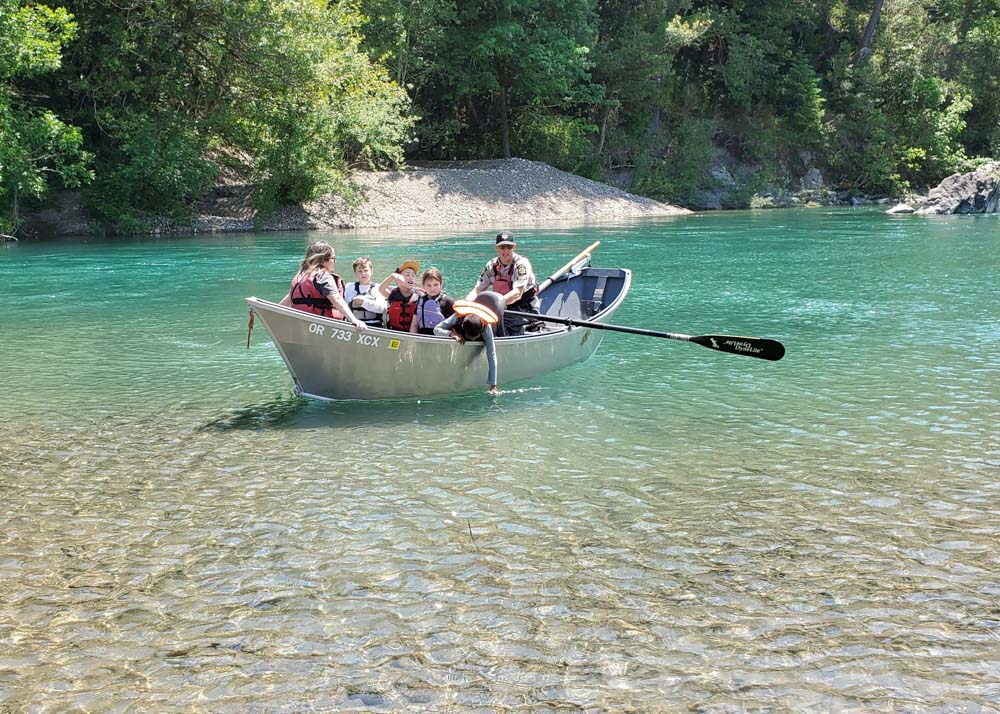
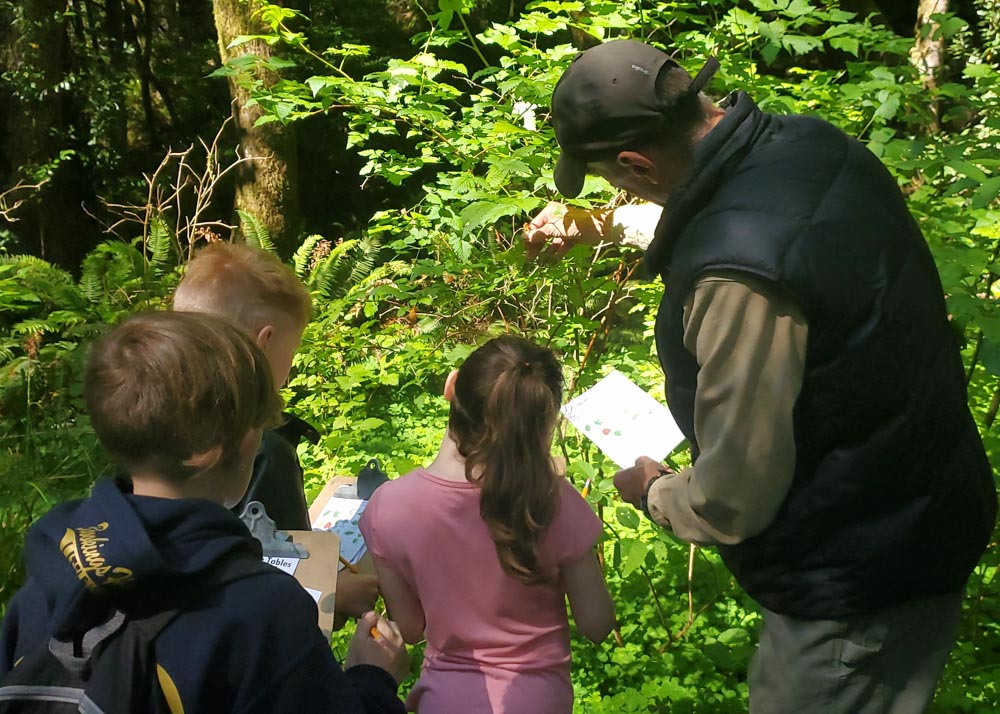
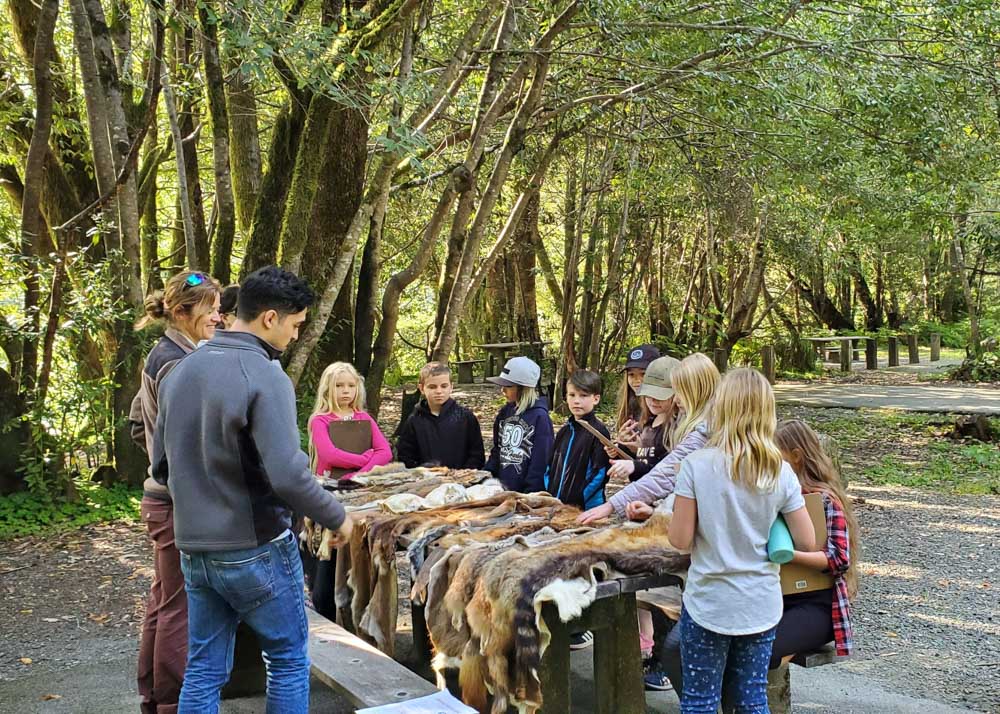
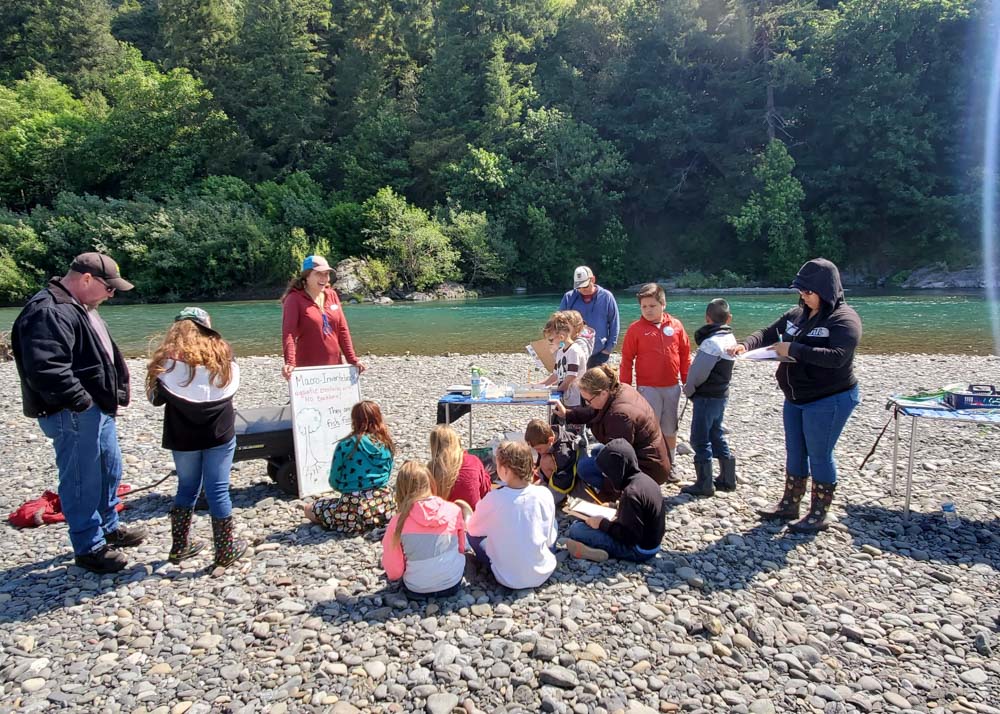
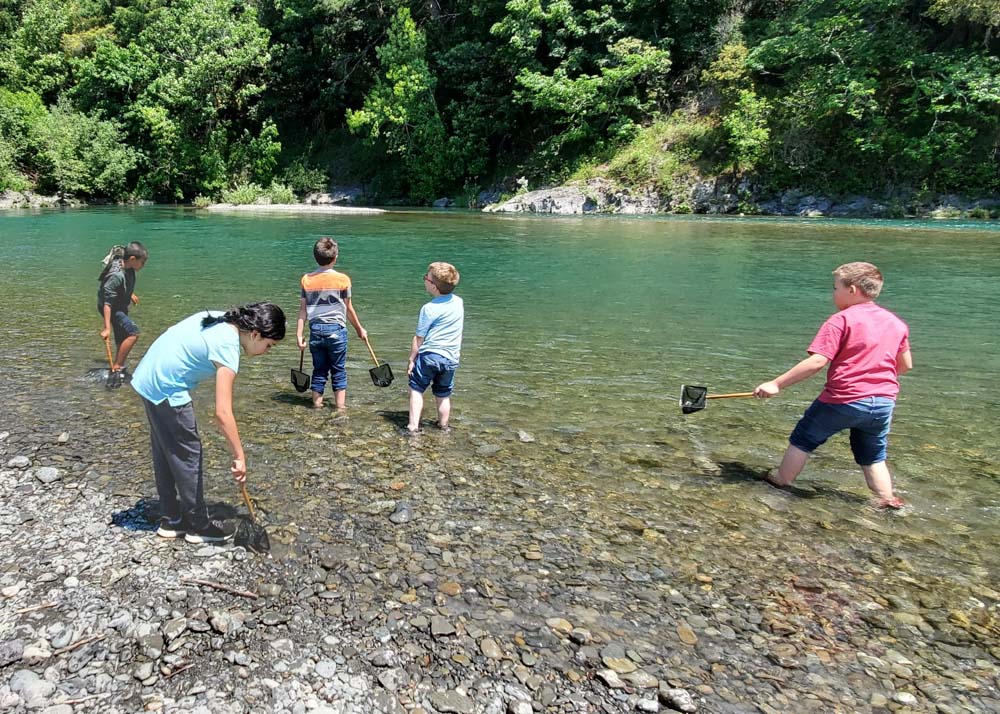
Stream Science:
Streams are dynamic places with learning opportunities in every riffle, under every rock, and in every pool. Students discover science skills while monitoring water quality, fish habitats, stream surveying, and more.
Testing water quality in outdoor field locations provides students “real world context” of how watershed uses and how land use affects water quality. Students are introduced to tools and methods scientists use to measure living and non-living things; both of which are indicators of clean, healthy water for aquatic life. Collecting macroinvertebrates is always a splashing success with students and teachers. This activity can be as elementary or technical as the group can handle. Abiotic (non-living) water quality testing involves handling chemicals and wearing safety equipment and is better suited for middle school students.
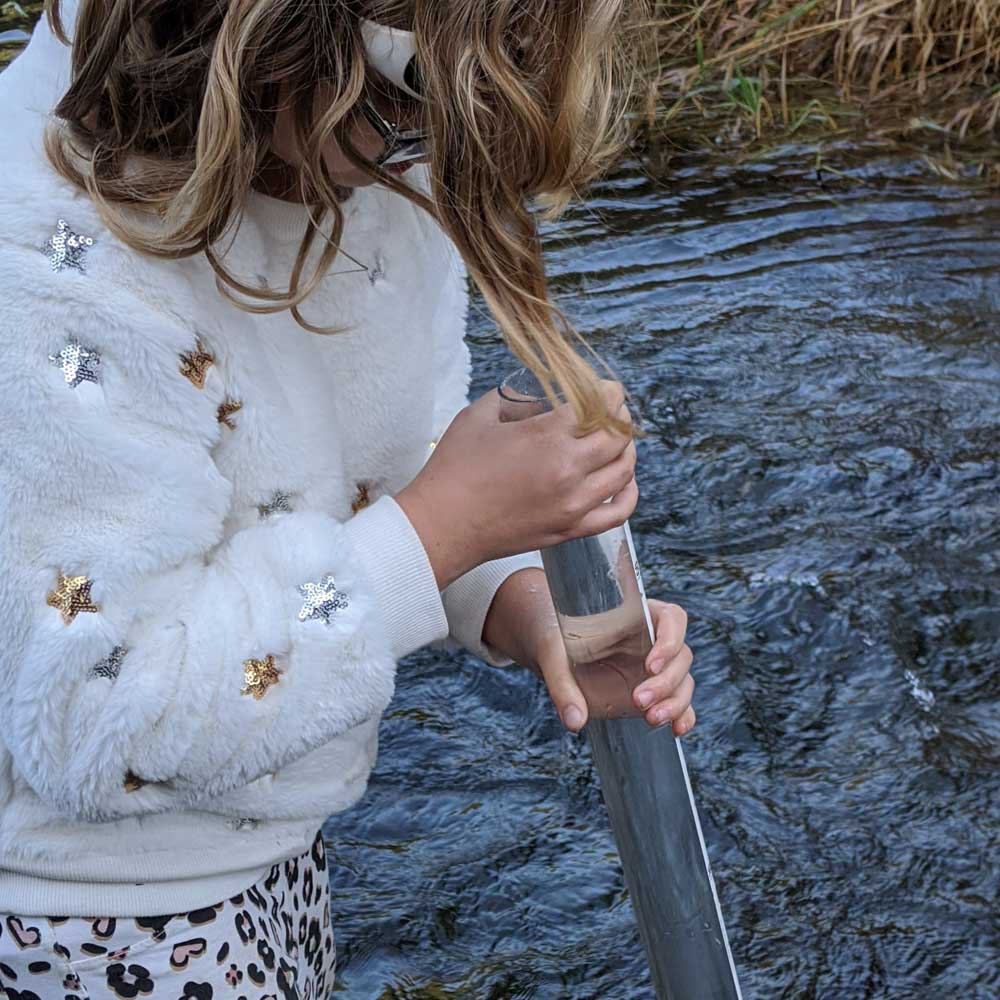
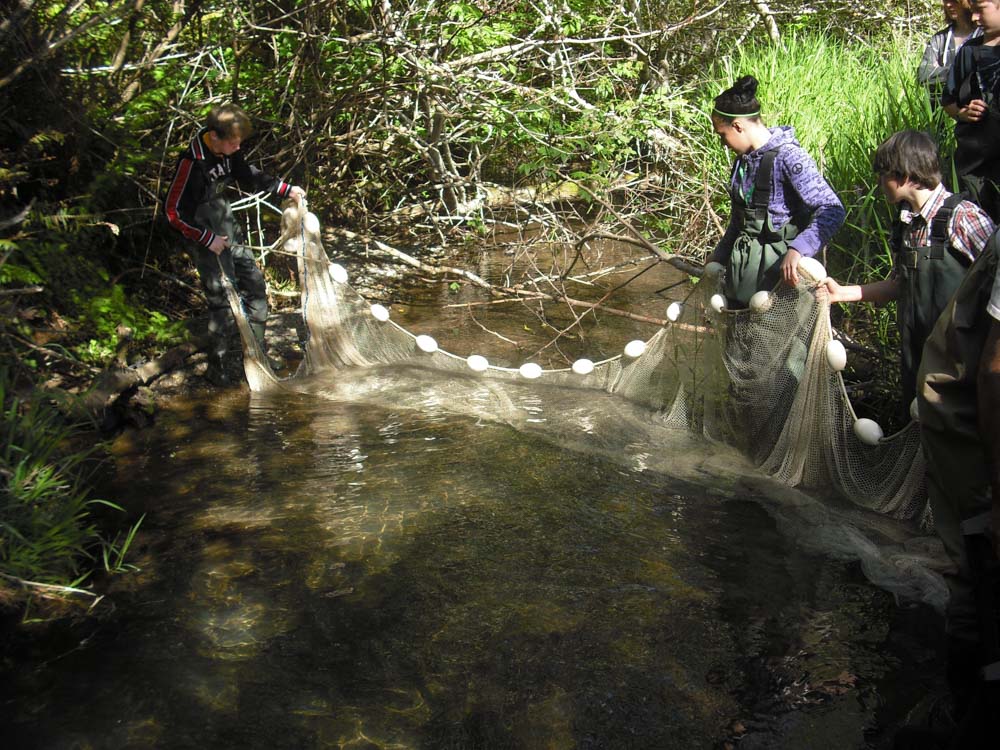
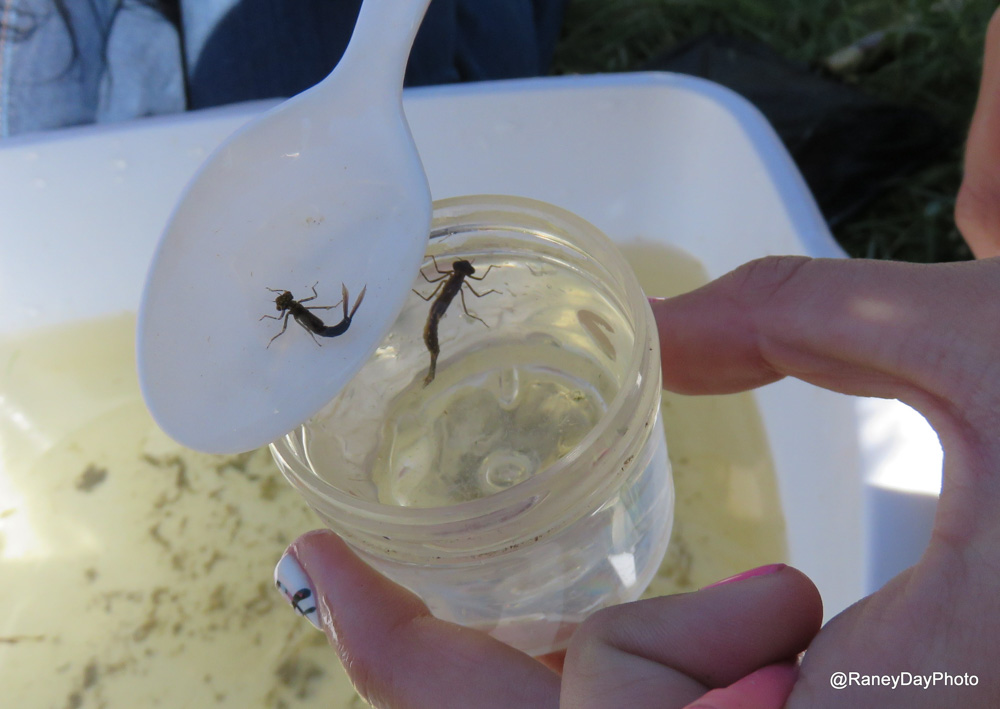
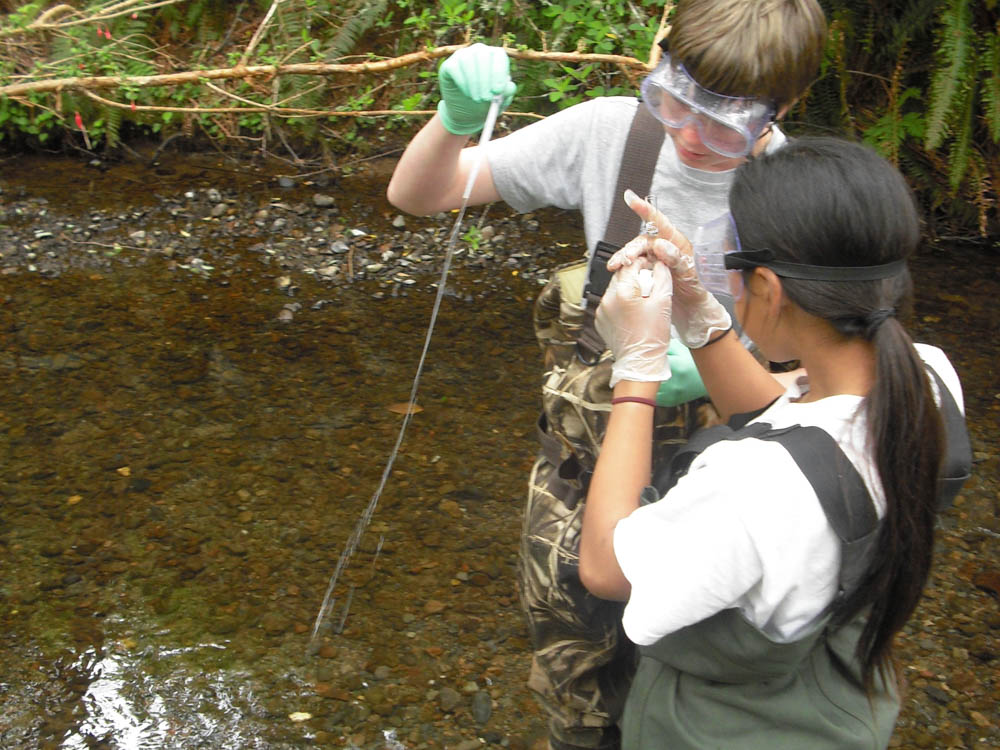
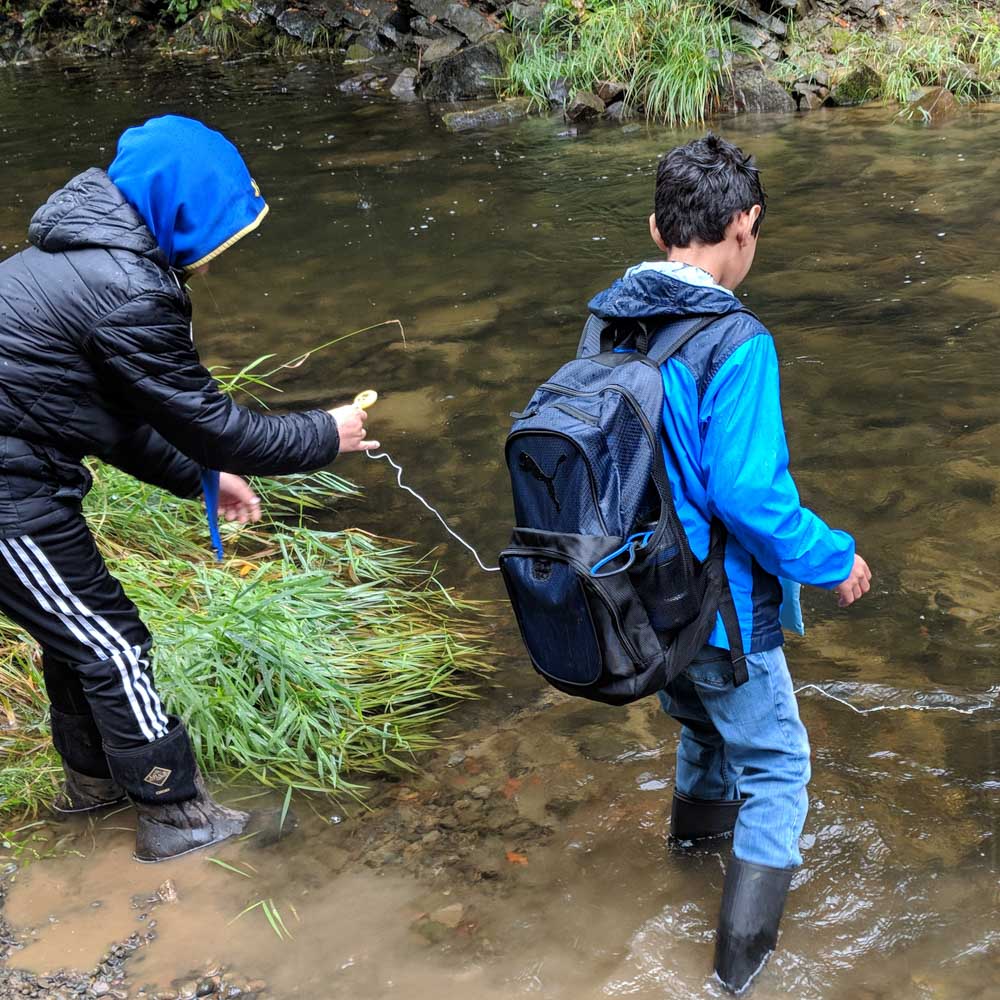
Riparian Restoration:
The YEP has been teaching youth how to care for stream habitats since 2004 with tree planting, invasive species removal, and litter clean ups across Curry county. Students have planted over 10,000 native trees and shrubs since the program’s inception.
Rain or shine, tree planting events are always memorable occasions that engage the senses, ignites the spirit of teamwork, and reminds us that our actions do make a lasting difference. Students plant January through March, and often make a spring visit back to the same site to offer tender loving care (TLC) to the young trees they planted. This also allows the learners to see how quickly an area can change, and begin to understand challenges that land managers must plan for when revegetating a site.
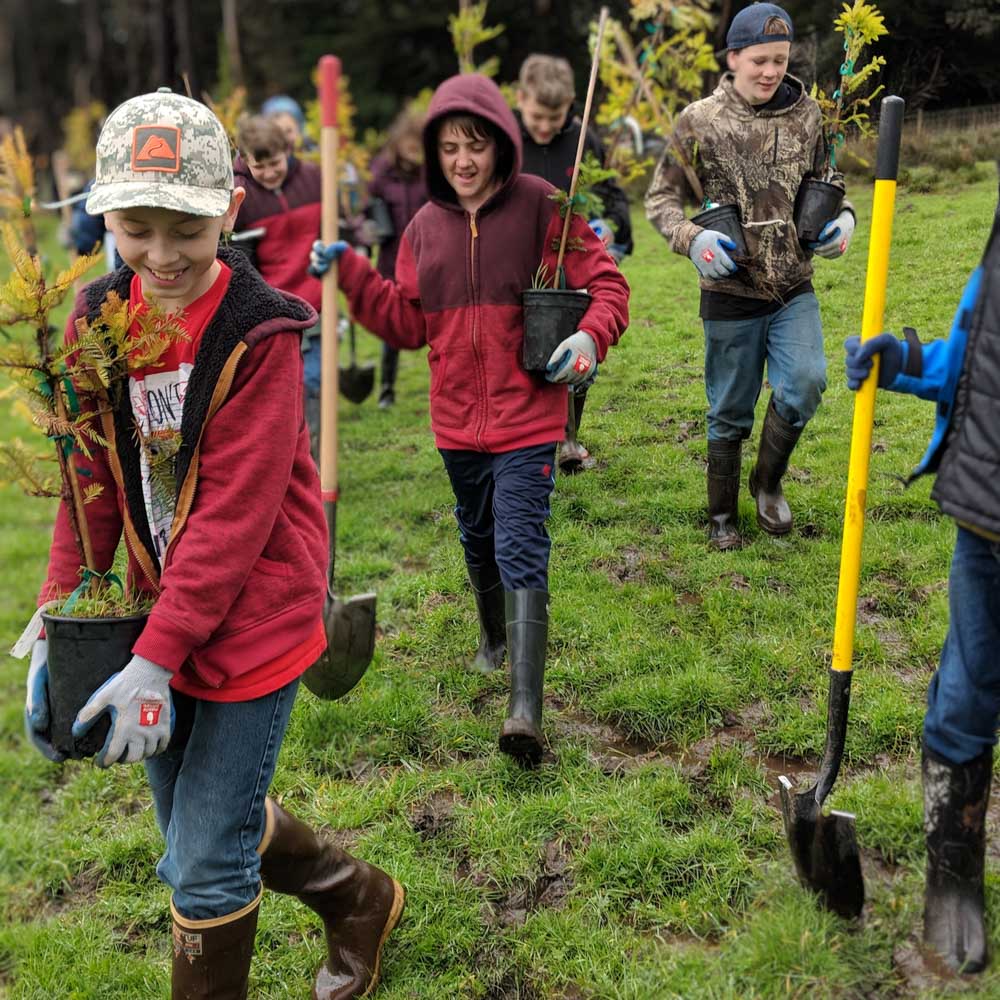
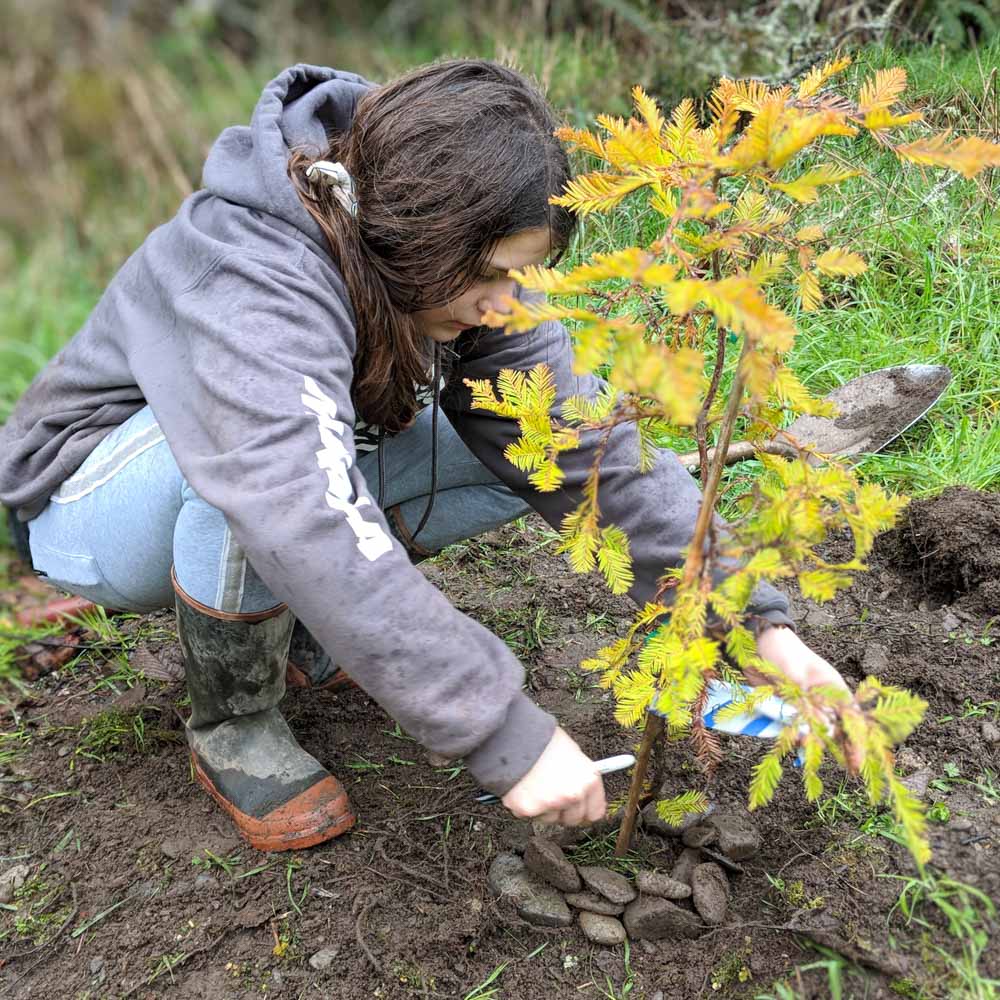
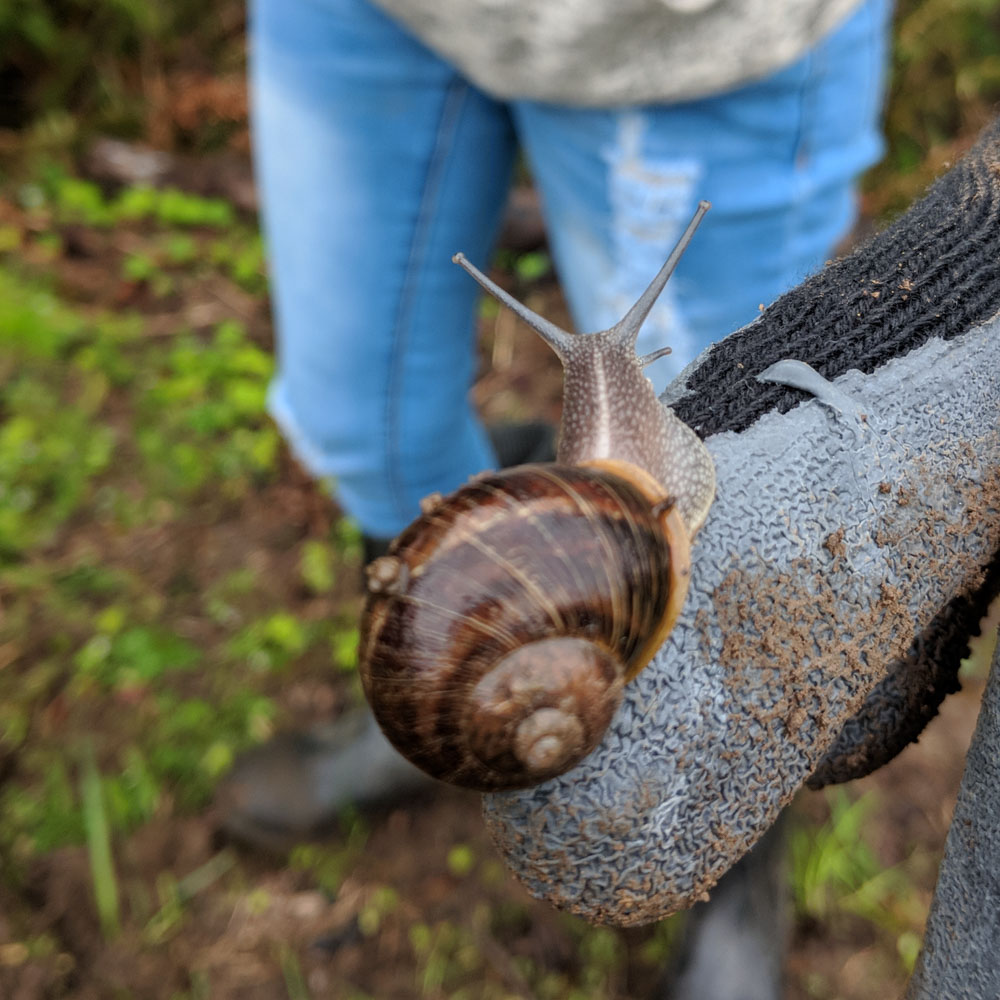
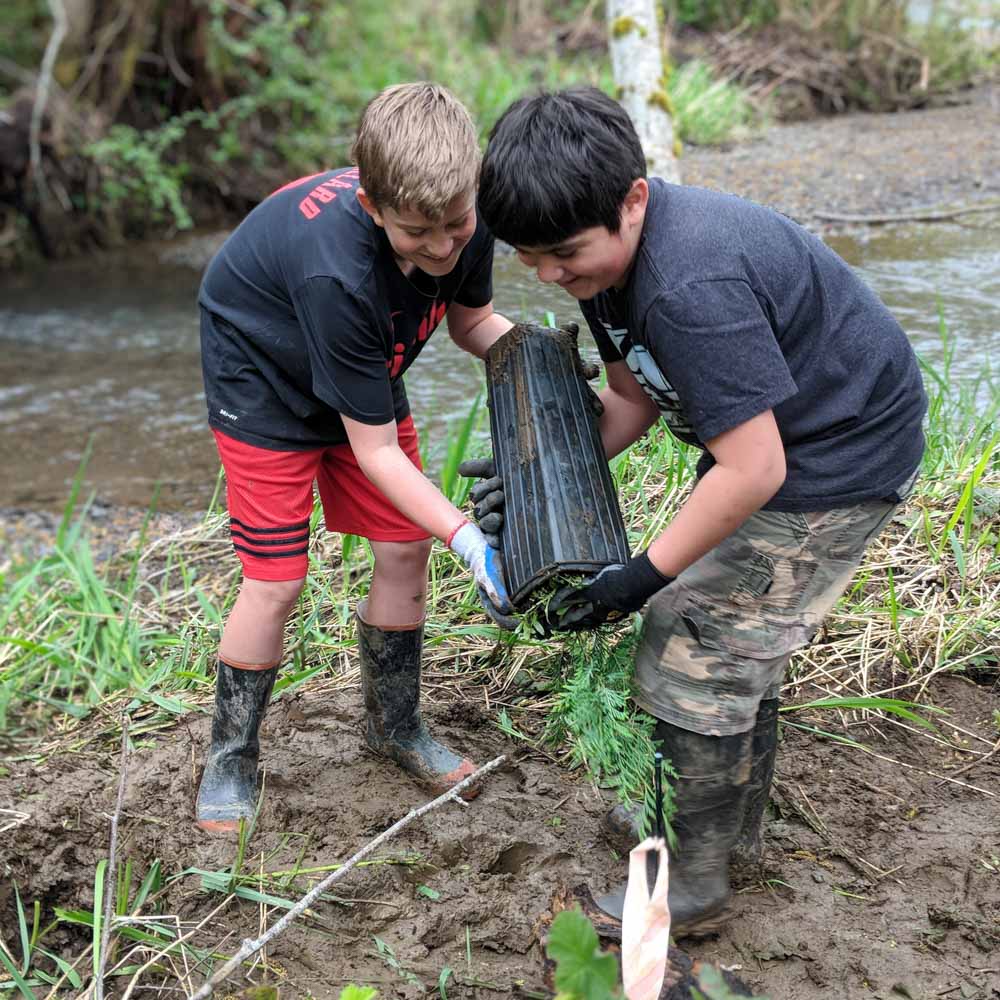
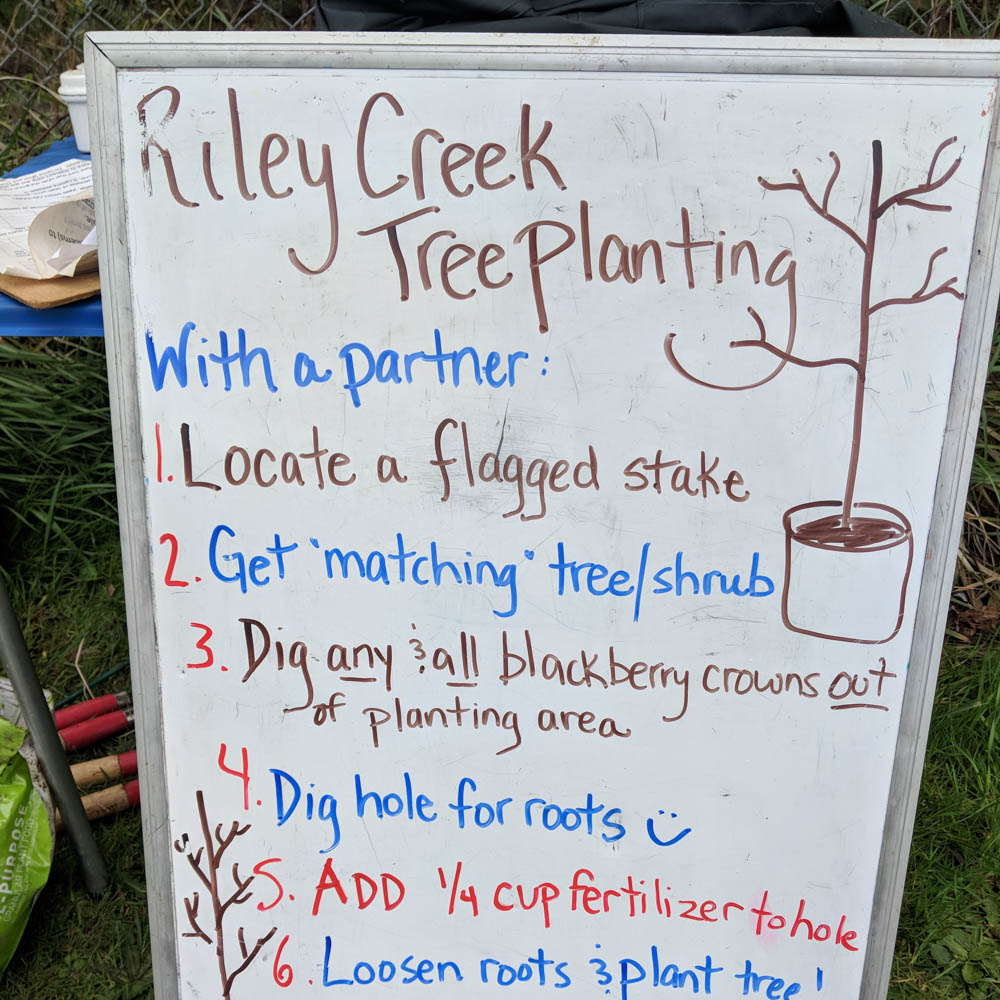
Farm and Agriculture
Seaview Cranberry Bogs:
Students and community visit Seaview Cranberry bogs to learn why the South Coast of Oregon grows the world’s best cranberries! These berries are loaded with nutrients and antioxidants, and are redder & “sweeter” than East coast varieties. Seaview cranberries are certified with Salmon Safe and Food Alliance; participants learn the consideration local farmers make to keep our watersheds clean.
Harvesting has changed over the years, and a variety of methods are still used today. Mechanical dry harvest machines are displayed, traditional wet harvest is demonstrated, and everyone gets a chance to pick their own berries by the oldest tradition, hand gleaning. Take home fresh cranberries to use seasonally or freeze them for later.
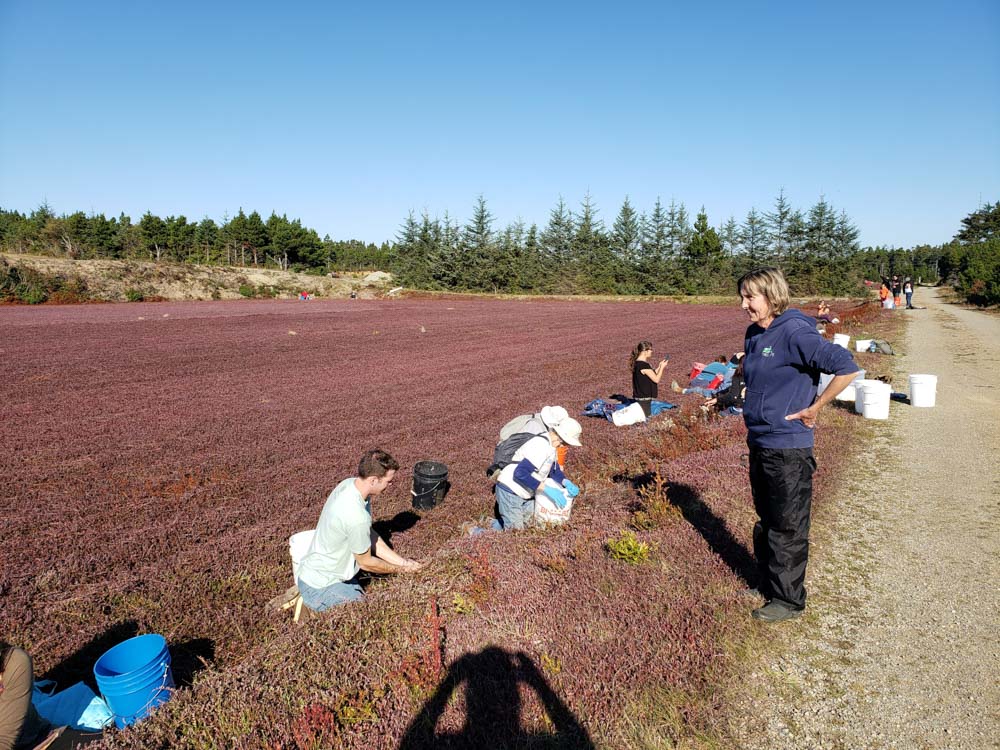
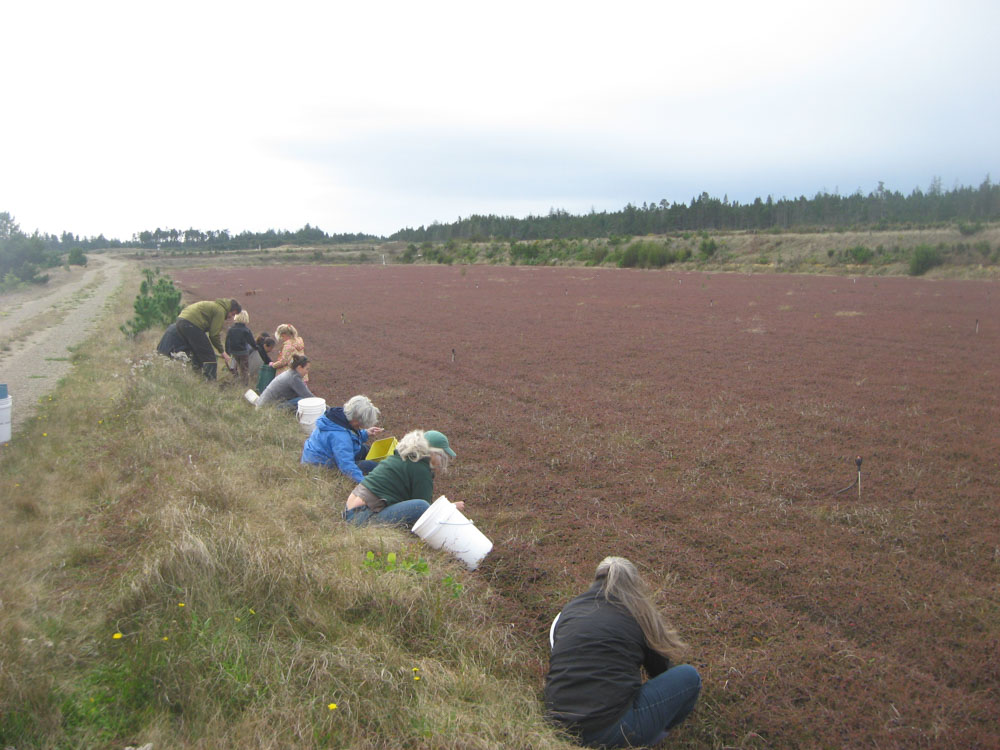
Valley Flora Farm:
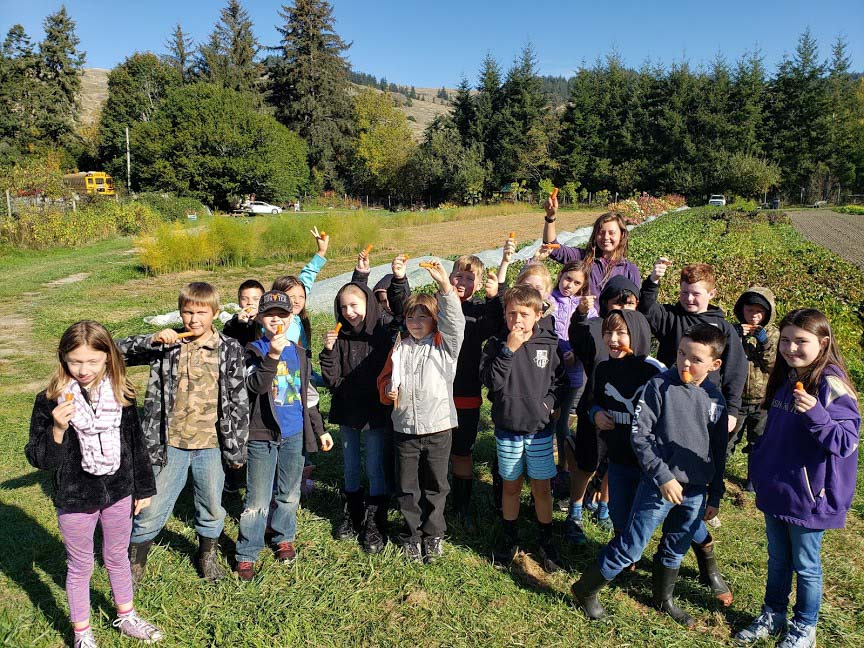
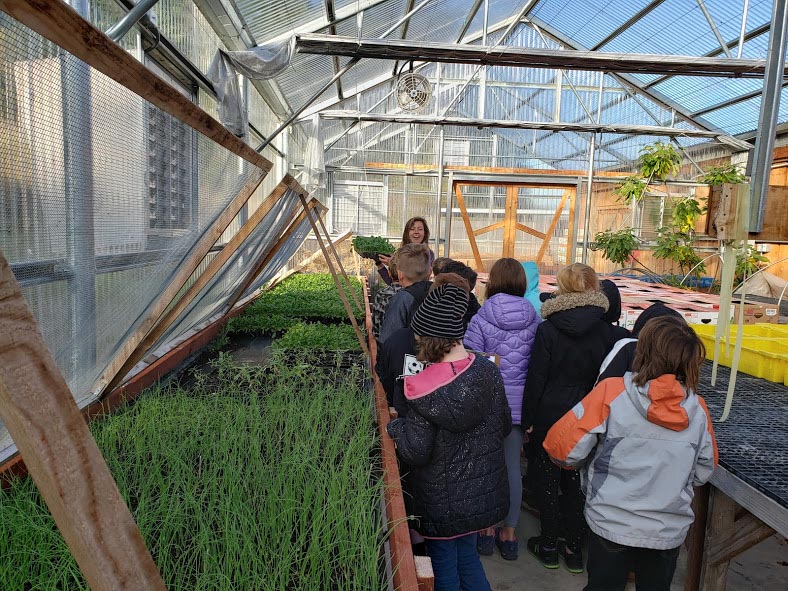
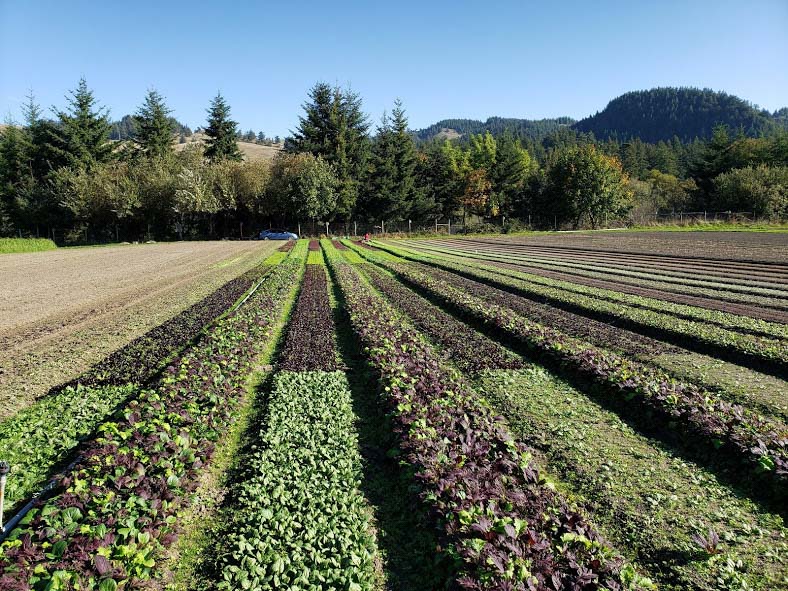
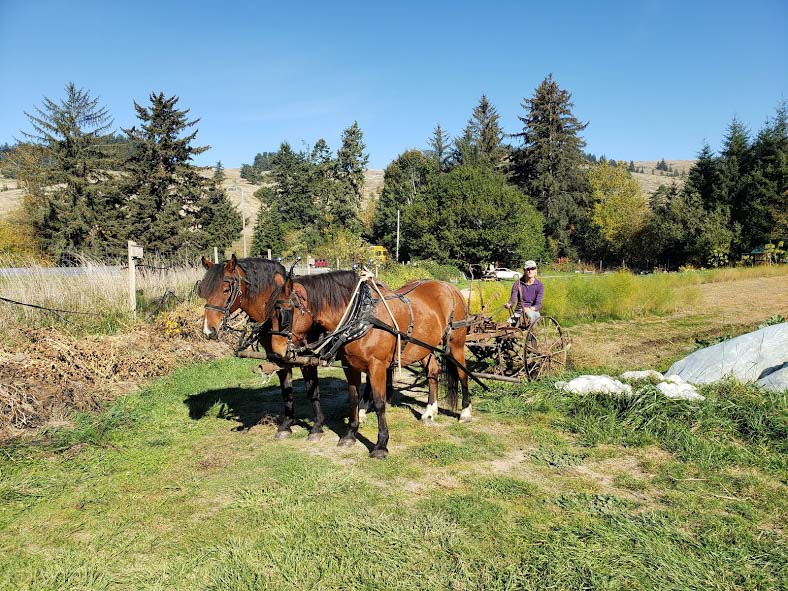
Wahl Sheep Ranch:
Visiting this sheep ranch during lambing season is something to experience. The Kinders come to see the baby lambs, and enjoy being in their pen as the curious fuzzy “bummer” lambs nose up close. Fifth graders watch a live birth, and learn how farm workers use teamwork to get the hard job done. Every lamb is carefully tended to, and each worker has their expertise.
7,000 births amount up to a pile of poo! Students learn the importance of keeping the manure out of the water supply, and how to tend it into nutrient rich compost. From a field above, students get an overhead view of how these farmers use intensive grazing to hold back invasive species, and other ranching strategies to keep nearby rivers & streams healthy.
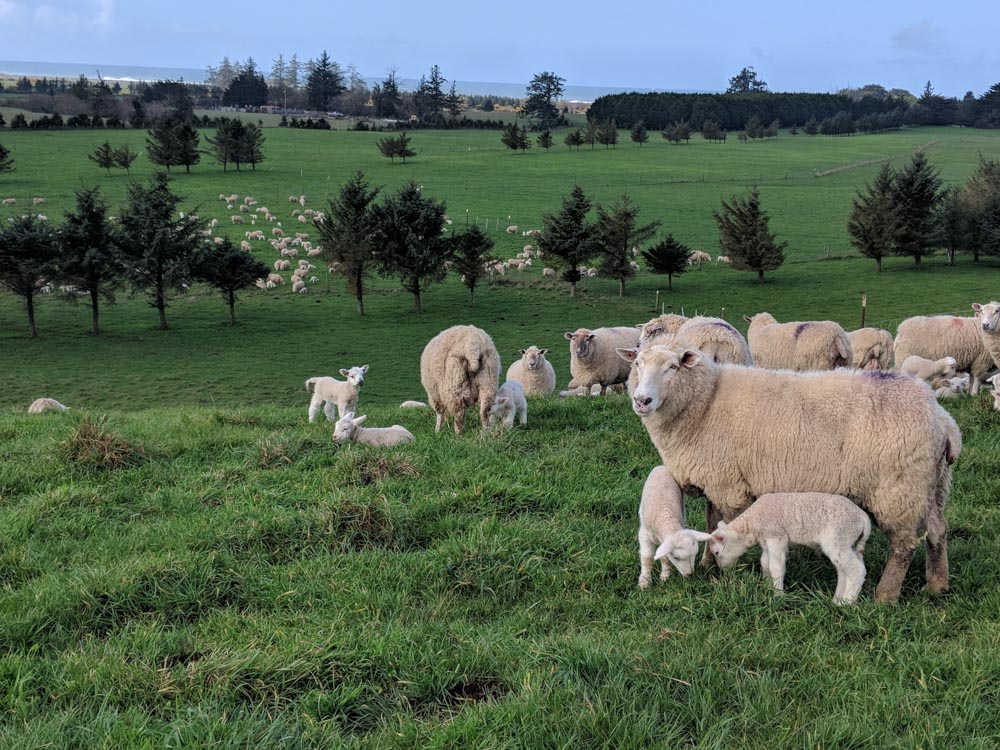
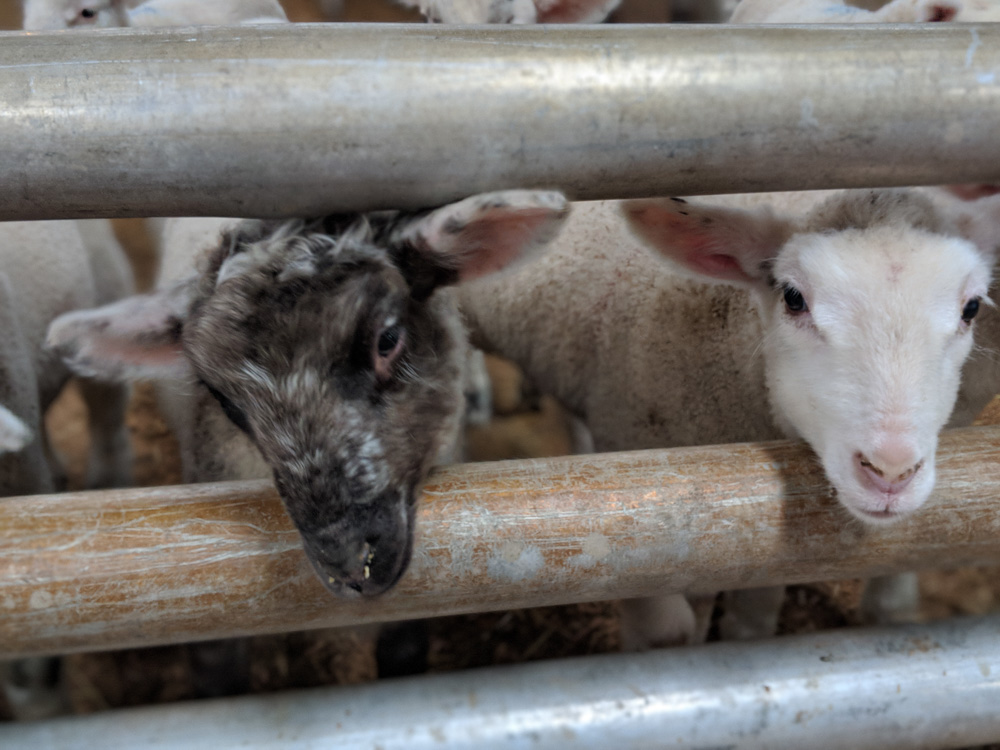
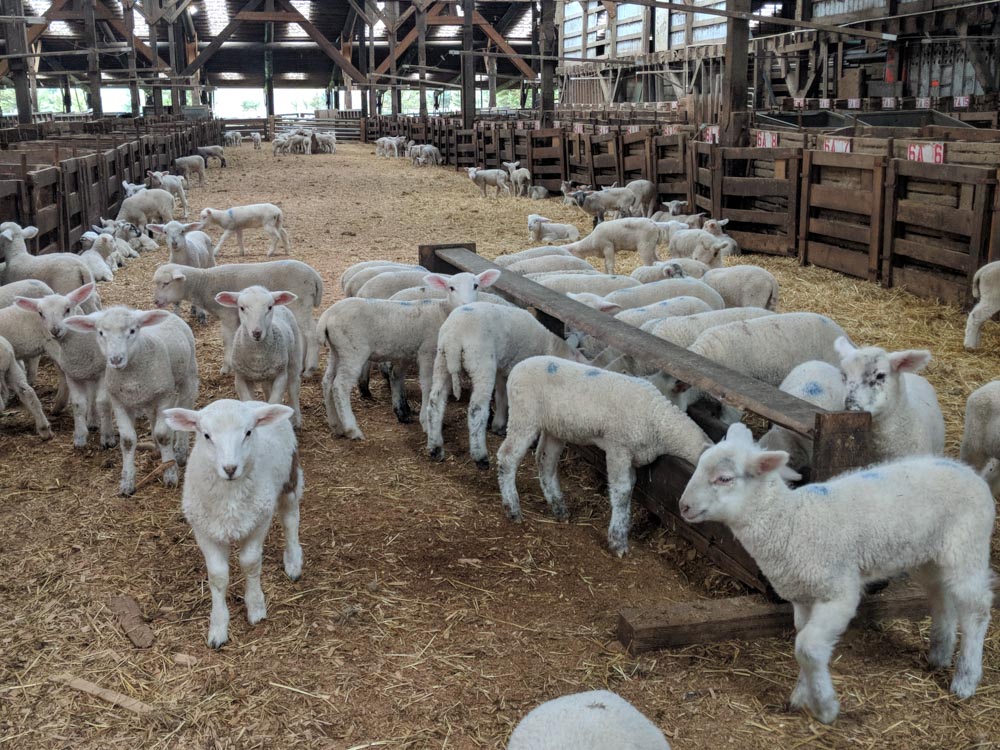
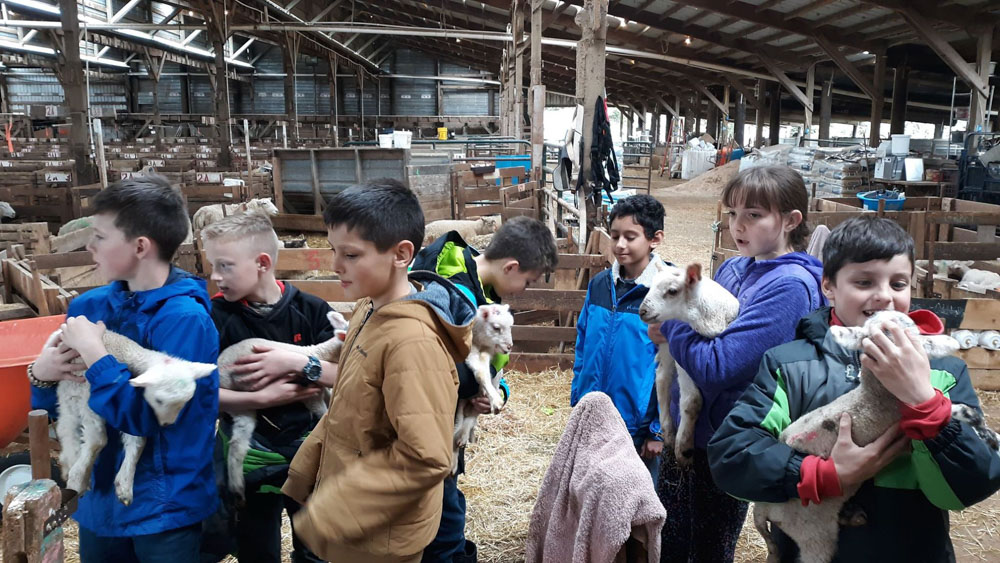
Port Orford Dock:
5th grade students visit a fishing dock, meet a fisherman, and are invited to board a fishing vessel. Students ask a fisherman/fisherwoman questions about their profession. Next students visit Port Orford Sustainable Fisheries processing plant, and learn about Community Supported Fisheries, and how fish moves from boat to plate.
At the nearby OSU Port Orford Field Station, students learn about how this field station supports scientific research, community priorities, and economic opportunities, while also fostering coastal stewardship and sustainability efforts.
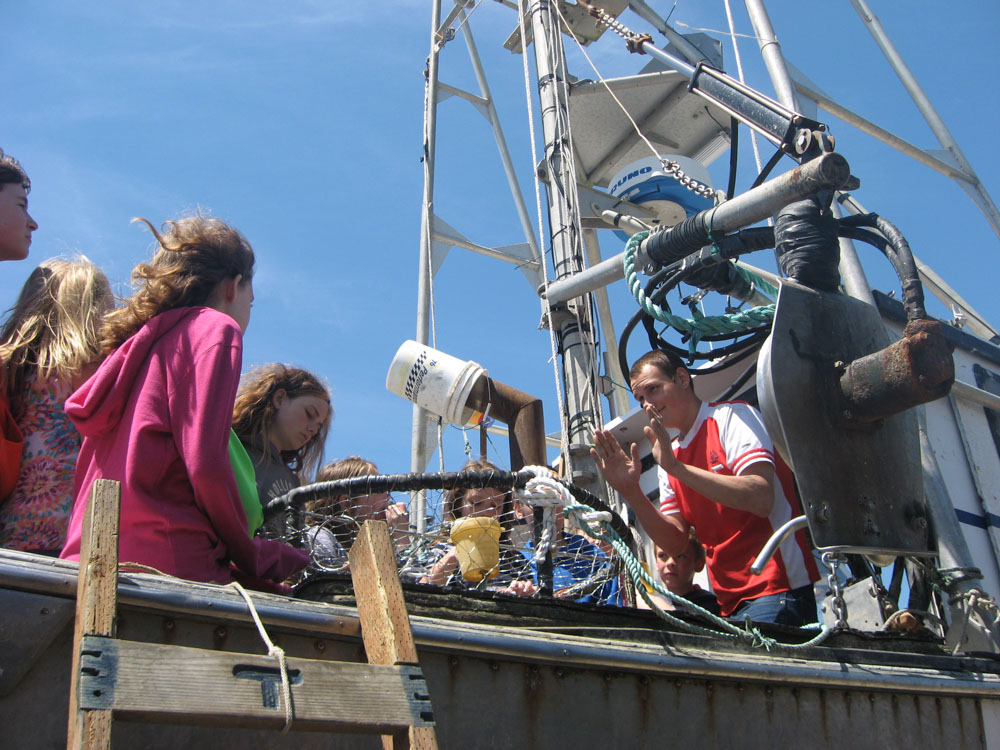
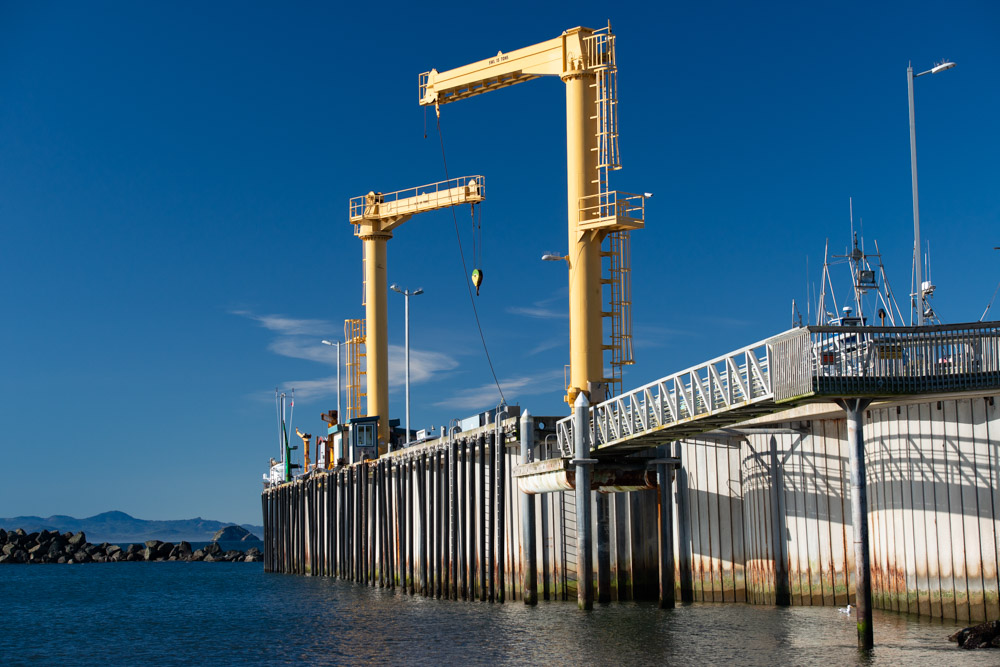
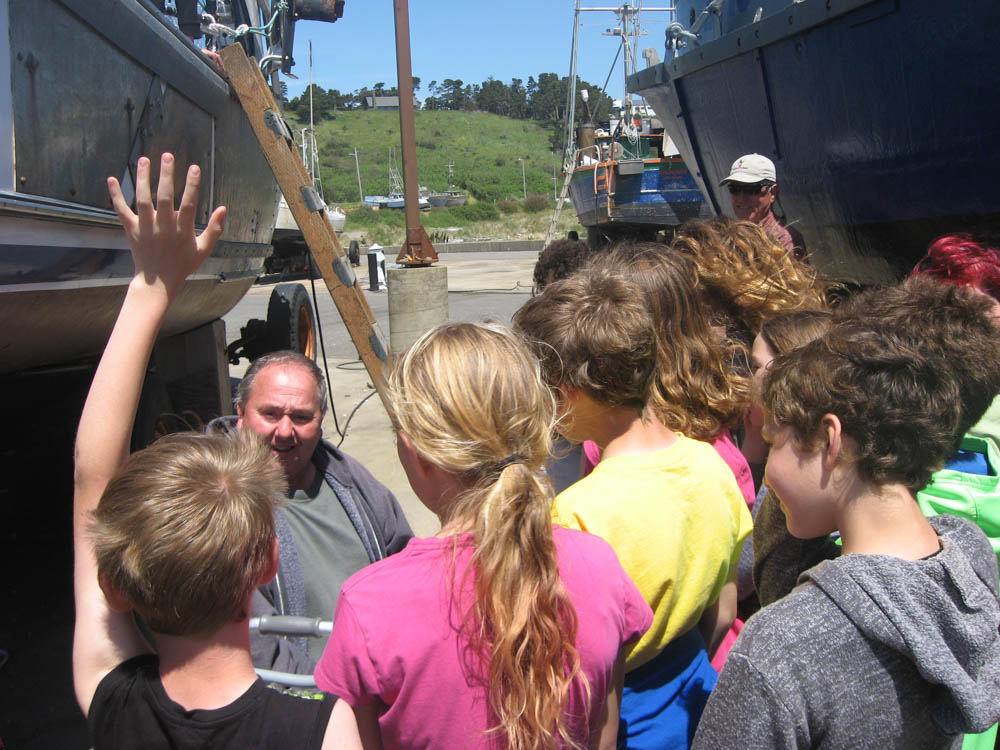
The Curry Watersheds Education Program also coordinates Adopt-a-Stream (or wetland!) projects throughout Curry County such as tree planting, litter clean ups, invasive species removal, water quality monitoring and more. To get your class involved in the Salmon Ecology lessons, or a watershed stewardship project near your Curry county school, call or email your ideas or interests to Jen Nelson!
